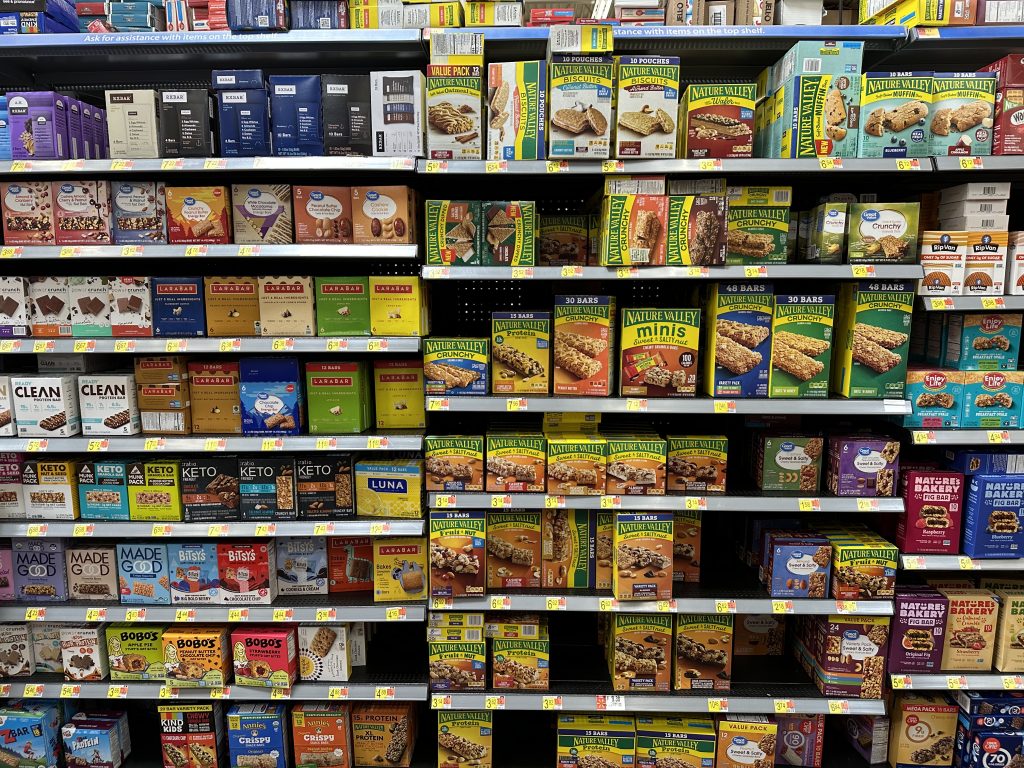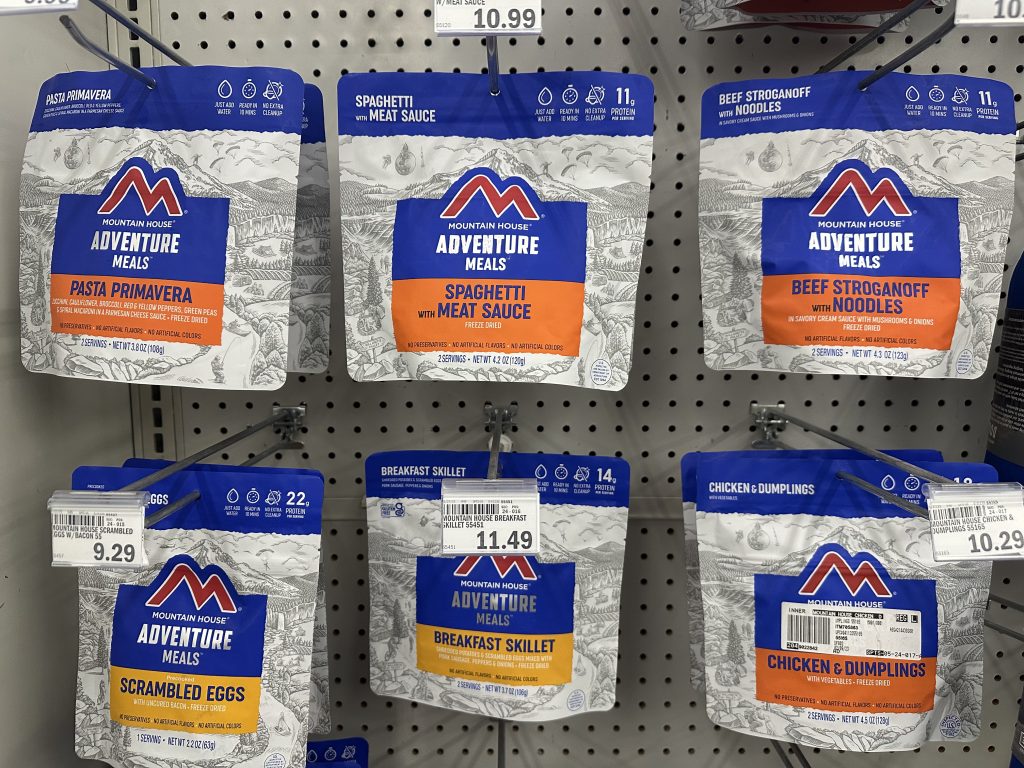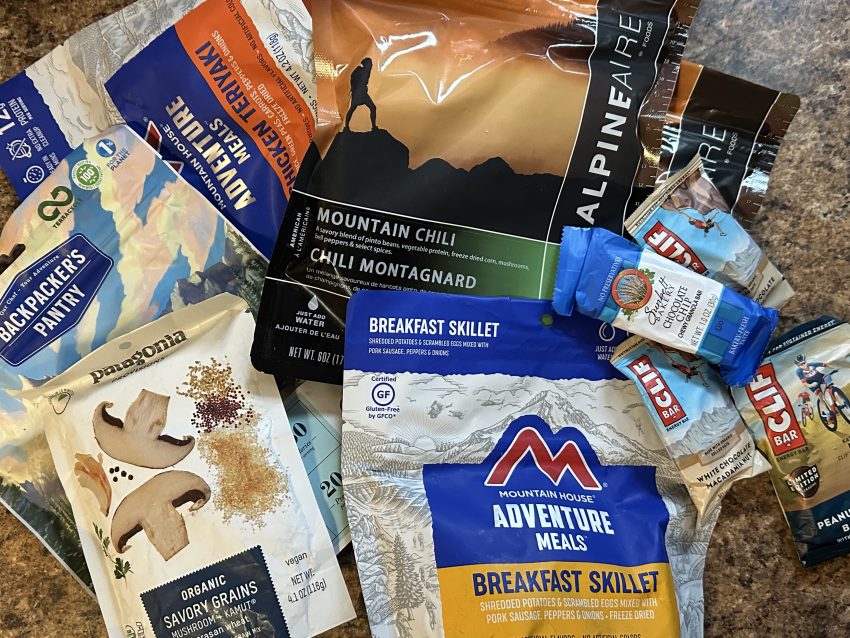Are you planning a hiking trip and don’t know how much food you should bring? Don’t worry, we have the answer! Whether you’re an experienced hiker or your first-time out, the right amount of food is key to having an enjoyable time. Here we will discuss the importance of having enough food while hiking, and provide some helpful tips on how to determine how much food you should bring.
The amount of food you’ll need depends on how long you’ll be hiking.

Day Hiking
If you’re just doing a day hike, you’ll likely just need a few snacks such as granola bars, jerky, and the classic trail mix. Freeze dried fruits and veggies are a great day hiking snack as well.
Backpacking

When it comes to backpacking, the amount of food you’ll need to bring depends on the length and difficulty of your trip. A good rule of thumb is 1 to 2 pounds of food per person per day. Another way to judge is 2,500 to 4,500 calories a day per person. If your trip involves strenuous uphill hiking this will take up a lot of energy, so you will want to aim for the higher numbers. This should include meals and snacks.
If you are backpacking for more than 7-10 days consider having food drops or caches to limit the amount of food you would have to carry at once. This is how thru-hikers are able to get through those long months of hiking the AT, PCT and CDT.
The type of food you bring is also important.
When it comes to the type of food you bring, it’s important to bring foods that are high in calories, easy to store, and don’t require any preparation. High-energy snacks like trail mix, granola bars, dried fruit, and nuts are great for snacks on the trail. For meals, consider bringing dehydrated meals such as Mountain House, Backpackers Pantry and/or other easy-to-prepare items that can be made with boiling water. Most dehydrated meals can be cooked right into the bag with just water.
No matter what type of food you choose, make sure it is lightweight and doesn’t take up too much space in your pack. It’s also a good idea to bring extra food in case of unexpected delays.
Make sure you have enough water to drink.
You can live up to 30 days without food, but only 3 days without water. Make sure to bring enough water for your entire hike or plan to cache water. An easy way to measure how much water you should bring is to bring 2-3 liters per person a day depending on the difficulty of the hike. If you’re hiking in the heat or going longer distances, you will want to bring more. Having enough water will help your body digest your food and absorb those nutrients.
It’s also important to plan for emergencies or unexpected events. Having extra water can be the difference between life and death in certain situations. Bring along some form of water purification such as iodine tablets, a filter pump, or water purification tablets. This will allow you to treat any water you find while out on the trails, giving you extra supplies if you get lost or stranded.
With a little bit of planning and preparation, you can make sure that you are fully prepared for your next hiking or backpacking trip! Happy Hiking!
